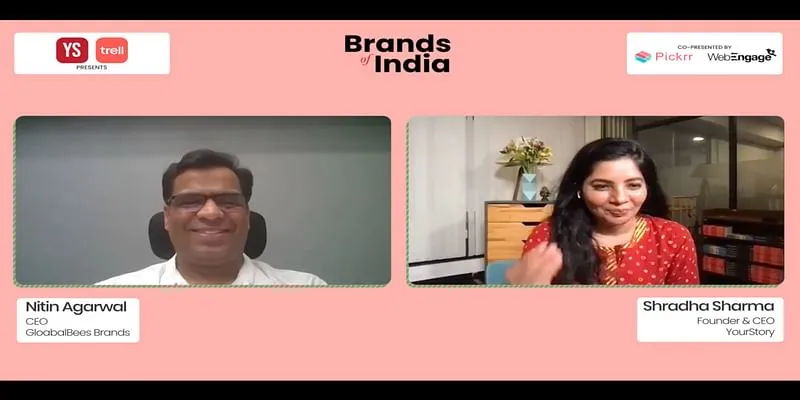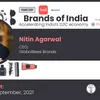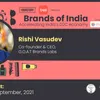What D2C brands aggregator GlobalBees looks for in a startup to invest?
GlobalBees, the Delhi-based Thrasio-like startup, recently acquired home care products company, The Better Home, besides signing three other deals.
Over the past few months, US-based unicorn Thrasio has enticed a bunch of startups and venture capital firms in India.
Nearly a dozen Indian startups are currently working on what is known as ‘the Thrasio thesis’ — investing and acquiring digital brands (third-party sellers) in different categories, and helping them in further scaling and revenue growth through investments in technology, working capital, and marketing efforts.
Startups such as , , , , , UpScalio, , and Bzaar are all building their own version of the ‘house of brand’ model, and aim to tap the immense D2C opportunity in India.
So what does it take for a digital brand to be invested in and acquired by one of these D2C aggregator companies?
Decoding the brand ‘buyout’ pitch, Nitin Agarwal, CEO and Founder, GlobalBees talks to YourStory Founder and CEO Shradha Sharma at YourStory’s flagship Brands of India event about the startup’s thesis behind its acquisition strategy.
Within a short period, Delhi-based GlobalBees has created quite an uproar in the Indian startup ecosystem. Started in May 2021, the company managed to raise a record $150 million Series A funding led by , Lightspeed Venture Partners, and others.
The startup acquires brands that have a revenue rate between $1 million and $20 million, which, as per the company, is proof of the product-market fit. It targets digital brands operating in different categories, including fashion, home and kitchen, electronic appliances, beauty, personal care, sports, and others.

GlobalBees looks at the following four characteristics in a brand:
- Repeatable consumer category: In terms of choosing a product category, GlobalBees looks for a digital brand that caters to products that are repeatable and will come into use time and again.
- Global appeal: GlobalBees prefers to choose categories that have a global appeal and is not restricted to a particular audience or geography. “The category should be able to play on a global stage and build a global brand,” says Nitin.
- Ecommerce friendly: The third, and most important, criteria is that the product should be ecommerce-friendly.
- Longevity of the innovation: The product must have the longevity of innovation. “At this point of time, we are not looking into those categories where we don't see the longevity. The product should be able to sustain the test of time,” the CEO says.
- In-depth knowledge of a category: Having deep knowledge about a category, more than customers, is an extremely important criteria for GlobalBees. “It is all about what we are able to imagine together with a category and what support we are able to provide,” says Nitin.

Nitin Agarwal, CEO, GlobalBees in conversation with YourStory Founder and CEO Shradha Sharma at the launch of YourStory's Brands of India initiative
Why brands must come under a single umbrella
Nitin divulges insights into the company’s interaction with digital brands and entrepreneurs during the pitches.
While a majority of them have ambitions of building the product and focus on innovation, in reality, they end up spending 95 percent of their time on other technical operations and management such as building the tech, logistics, COD delivery, reconciliation, listing, vendor agreements, and so on. This is where companies like GlobalBees aim to enter by taking over those services and providing an enterprise ecosystem to scale the brand.
“They are passionate about the product, they know the category, and really want to spend time on that. So it’s a win-win for both GlobalBees and entrepreneurs to be able to realise that full potential,” says Nitin.
A brand will be able to grow faster and better when put under an umbrella ecosystem of infrastructure, finance, technology, logistics, and so on.
“It is extremely hard to grow a brand individually. This takes away the pain of dealing with complex supply chains, logistics, building platforms, access to working capital etc,” he says.
Shaping up ‘house of brands’ model
The roll-up ecosystem has managed to get millions in funding but is yet to see significant acquisition. Though still at a nascent stage, the model is, however, shaping up in the country with new deals and promising pipelines at the back of the growing D2C market.
Recently, GlobalBees made its first deal after acquiring a home care products company—The Better Home—at an undisclosed amount. The company has also signed three more deals, says Nitin.
The fact that the entrepreneurs choose a platform like GlobalBee over a venture capital firm, irrespective of the valuations, is the initial positive step towards the success of the ‘house of brands’ model.
“We are getting a lot of active inbound interest as well. Initially, there was a lot of scepticism around this model, in terms of getting opportunities and valuations that platforms will bring and so on. All of that is beginning to settle down and both — entrepreneurs and platforms — are beginning to understand each other,” the CEO says.
An alternative for VC capital?
While there are several startups gaining venture capital funding every day, there are also several entrepreneurs working on a bunch of innovative products that slip under the radar. Many of these startups and small businesses may not find their feet in venture capital and private equity spaces when looking from a particular investing criteria.
“It is not that they are not great businesses. But when you are completely dependent on a team to execute for you as a financial investment, you look at a company from a very different angle. Whereas when we go into the company, we look if the person knows their category well, and the rest will take care. That creates altogether a very different ecosystem,” says Nitin, as he lauds the growing insights, innovations, and activity in Tier-II and III cities.
Having said that, these entrepreneurs today have an entire ecosystem of alternative investments, including having the choice between venture capital, private equity, angel investment, and platforms like GlobalBees.
“99 percent of the world does equally and better than just the Ivy League graduates. 1 percent of those businesses get funded by venture capital and private equity. And then there are those 99 percent businesses that are equally good and better, in some cases, and just want something different as capital and not a venture and private equity capital,” the founder signs off.
Brands of India is a YourStory initiative to catalyse the growth of India's D2C economy. The initiative will bring together D2C ecosystem stakeholders, including brand builders, D2C startups, investors, corporates, and policymakers, to discover, build and help daring entrepreneurs create an additional 500 Brands of India in the next three years.
To know more about this initiative and the D2C ecosystem, visit brandsofindia.yourstory.com
Edited by Kanishk Singh










